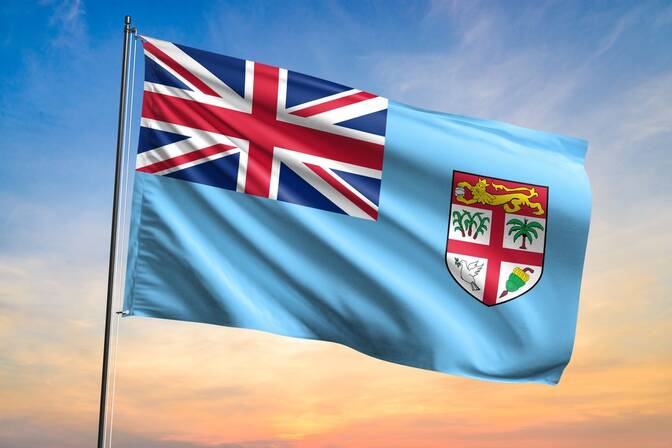Dia da Independência
10 de Outubro, sábado

História da celebração
As Fiji foram uma colônia britânica desde 1874. Em meados do século XX, o país começou seu caminho rumo à autonomia. Em 10 de outubro de 1970, as Fiji tornaram-se oficialmente uma república independente e juntaram-se à Comunidade das Nações. Desde então, este dia é comemorado como um feriado nacional que simboliza a liberdade e a soberania do país.
Significado da celebração
O Dia da Independência é um símbolo da identidade nacional e da unidade do povo fijiano. Ele destaca a luta histórica pela independência, as conquistas do país e sua diversidade cultural. A celebração lembra aos cidadãos a importância da responsabilidade cívica, do patriotismo e da preservação das tradições nacionais.
Tradições e eventos
No Dia da Independência nas Fiji, são realizados diversos eventos oficiais e culturais:
* cerimônias de Estado com a presença do presidente e de outras autoridades;
* desfiles e demonstrações militares que mostram a força das forças armadas;
* concertos, festivais e exposições dedicados à cultura e às tradições das Fiji;
* eventos esportivos e celebrações populares nas ruas;
* atividades escolares e comunitárias dedicadas à história e à independência do país.
Percepção atual
Hoje, o Dia da Independência é um dos feriados nacionais mais importantes das Fiji. Os cidadãos participam ativamente das celebrações, e as instituições públicas e empresas permanecem fechadas. A data promove a unidade nacional e o fortalecimento do patriotismo entre as novas gerações.
Fatos interessantes
* Neste dia, bandeiras das Fiji são hasteadas nos edifícios governamentais.
* Muitas famílias realizam piqueniques e atividades ao ar livre.
* O Dia da Independência está intimamente ligado à expressão da rica identidade cultural e étnica do país.
Dia da Independência em outros anos
- 2021 10 de Outubro, domingo
- 2022 10 de Outubro, segunda-feira
- 2023 10 de Outubro, terça-feira
- 2024 10 de Outubro, quinta-feira
- 2025 10 de Outubro, sexta-feira
- 2027 10 de Outubro, domingo
